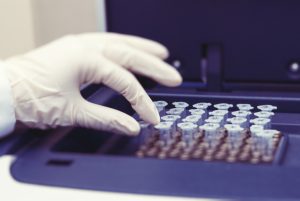 On April 22, 2022, Colorado Senate President Stephen Fenberg introduced SB22-224, entitled the “Donor-conceived Persons and Families Of Donor-conceived Persons Protection Act.” The bill passed the Senate State, Veterans, and Military Affairs Committee with a unanimous bi-partisan vote and has a fair chance of making it through the full legislative process before Colorado’s legislative session ends May 11, 2022.
On April 22, 2022, Colorado Senate President Stephen Fenberg introduced SB22-224, entitled the “Donor-conceived Persons and Families Of Donor-conceived Persons Protection Act.” The bill passed the Senate State, Veterans, and Military Affairs Committee with a unanimous bi-partisan vote and has a fair chance of making it through the full legislative process before Colorado’s legislative session ends May 11, 2022.
The bill is historic … and untested. No state in the country has come anywhere close to enacting these types of regulations concerning the donation of eggs and sperm (known as gametes), and the rights of donor-conceived persons. The bill provides for the following. (Hang on. It’s a lot!)
- No more anonymous donation. The bill prohibits providers of sperm or egg donations in the state of Colorado — and out-of-state egg and sperm banks providing gametes to Coloradan recipients — from being permitted to facilitate an anonymous donation. At all. Prior to donation, a donor will be required to agree that their identity will be released to their donor-conceived, genetically connected offspring upon request after the donor-conceived person’s 18th birthday. This is similar to the right of adoptees upon adulthood in Colorado. (Happy birthday, you get to know who your genetic parent is!)
- Access to medical information. Further, any donor will be required to consent to the release of their medical history when any donor-conceived person, conceived using that donor’s gametes, reaches the age of 18. The entity that gathered the material (whether the clinic, bank, or agency) is required to collect and regularly update each donor’s medical information. Prior to the donor-conceived person turning 18, a parent or guardian can access the donor’s nonidentifying medical records.
- 25-Family Limit. The bill stops egg and sperm banks from permitting more than 25 family recipients for any given donor’s gametes. For counting purposes, the 25 families is based on “live births,” does not limit a family from additional siblings, and does not count family-to-family embryo donation. Genavieve Jaffe, the founder of Connecting Rainbows, an organization providing educational resources for LGBTQ+ families, supports the bill and especially limits regarding offspring from any one donor. She recounted her recent shock and dismay at discovering that her two children, conceived with the assistance of an unknown sperm donor, have 25-and-counting half-siblings, one of which lives less than 10 minutes from her. There is also broad support in the donor-conceived community for placing a limit on how many offspring a single donor can produce.
- No more than six egg donation procedures per donor. The bill also limits egg donors from undergoing more than six egg donation retrieval procedures. This limit is consistent with guidelines from the American Society for Reproductive Medicine (ASRM). The bill’s limit of six does not apply if the egg donor is known at the time of donation, and does not distinguish between compensated or uncompensated egg donation. Some reproductive equity advocates have criticized this limit as paternalistic, limiting a woman’s rights to autonomous risk-assessment and decision-making concerning her own health.
- Educational materials. Sperm and egg banks in Colorado will be required to provide educational materials to recipients of donor gametes explaining the interests of donor-conceived persons, including: that studies show that family secrecy about family formation can negatively affect children and family relationships, that donor conceived persons will have a right to learn the identity of the donor, the limitation of donor screening, and future implications for the donor-conceived person that there may be other persons in other families conceived with the same donor’s eggs or sperm.
- Effective date. Most provisions of the bill, if passed, are not scheduled to go into effect until January 2025. The requirements are not retroactive.

4 Ways Your Firm Can Build Economic Resilience
It’s the key to long-term success in an uncertain business climate.
The proponents. The U.S. Donor Conceived Council has been a driving force behind the bill, as it works to put restrictions into law to address some of the traumatic experiences and difficulties that their members have experienced. “This legislation was drafted with input from, and is supported by, law professors, donors, donor-conceived people, industry professionals, parents of donor-conceived children, and other stakeholder groups,” explains U.S. Donor Conceived Council President Erin Jackson. “It is time for this industry to demonstrate its concern for all involved parties.”
There’s nothing like it. No similar law of this magnitude — particularly on the anonymity and family limit pieces — has ever taken effect in any American state. However, many European countries have laws that limit the number of offspring per donor and regulations preventing permanently anonymous sperm and egg donation. While other countries — like Spain — require only anonymous donation! However, those countries with legal restrictions on the number of children generally also have a national mandatory registry for tracking.
In the U.S., the closest we have to this proposed law are nonmandatory guidelines promulgated by the ASRM. Those guidelines suggest limits — such as no more than 25 births from one donor in a population of 800,000. A few states, including California and Washington, have moved the default on egg and sperm donation to require open identity at 18, but even those states have an opt-out provision permitting continued anonymous gamete donation.
The Concerns

Transform Legal Reasoning Into Business-Ready Results With General AI
Protégé™ General AI is fundamentally changing how legal professionals use AI in their everyday practice.
- Decreased access to family-building options. Among concerns about the bill is a worry that there could be significant unintended consequences. If the process and the cost of compliance — including licensure, annual fees, and inspections — is too burdensome for providers, they may simply choose not to assist Coloradan families whatsoever. With less than 4 million people, the Centennial State has only a handful of fertility clinics (although some are sought out nationally and internationally for their excellence in fertility care) and only one locally based sperm bank. Overly burdensome regulations will potentially put Colorado’s one sperm bank out of business, and cause out-of-state providers to choose to focus their services on the country’s 49 other states.
- Increased cost to hopeful parents. Intended parents turning to egg or sperm donation, whether due to medical issues, single parenthood by choice, or being part of the LGBTQ+ community, already face steep costs for donor gametes to grow their families. It is unclear how much such a new law will increase costs to recipients. The fear is that a significant increase would reduce accessibility and, for some, place parenthood out of reach.
- Is compliance possible? Another concern for providers is lack of clarity and difficulty fulfilling the obligations placed on providers. The 25-family limit, for example, requires a sperm bank to track how many live births result from any given donor subject to the law. But a sperm donor, for example, may not be forthcoming with a sperm bank about prior donations, and recipients may forget or decline to report their live births to the sperm bank. The bill proposes stiff penalties for noncompliance, including fines of up to $20,000 a day at the discretion of the Colorado Department of Public Heath.Dr. Betsy Cairo, founder of Colorado Cryogam, Colorado’s only locally based gamete bank, explained that the United States is a popular provider of donated gametes for other countries with strict restrictions similar to those in this bill. She is concerned for her clinic’s ability to comply with the law due to lack of clarity and practical considerations (such as the requirements for a Department of Public Health approved bankruptcy plan, possibly requiring a surety bond) as well as the effects it will have on potential hopeful parents in Colorado.
- Bigger issues? Aside from compliance difficulties and unintended consequences, others have expressed bigger concerns of the impending regulations. Does the bill trigger constitutional issues of equal protection? What about questions of privacy for donors and recipients? Will forcing egg and sperm banks to distribute certain educational literature be considered unconstitutional compelled speech?
The U.S. Donor Conceived Council expects SB22-224 in Colorado to be just the first in a wave of new legislation in this area. Time will tell what the right balance is, and whether Colorado has struck that balance on the first try.
Disclosure Note: I, the author, testified at the Senate Committee hearing for Colorado SB22-224 on behalf of Colorado Fertility Advocates (CFA), a nonprofit group dedicated to supporting Colorado families and individuals facing fertility challenges. At that time, CFA was in an “oppose” position and has since moved to a “neutral” position on the bill following a number of amendments.
 Ellen Trachman is the Managing Attorney of Trachman Law Center, LLC, a Denver-based law firm specializing in assisted reproductive technology law, and co-host of the podcast I Want To Put A Baby In You. You can reach her at [email protected].
Ellen Trachman is the Managing Attorney of Trachman Law Center, LLC, a Denver-based law firm specializing in assisted reproductive technology law, and co-host of the podcast I Want To Put A Baby In You. You can reach her at [email protected].